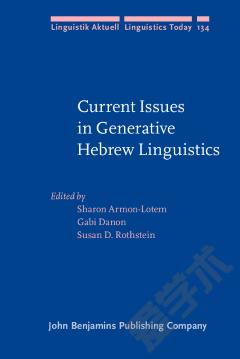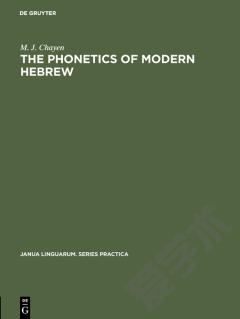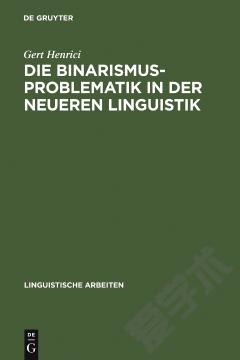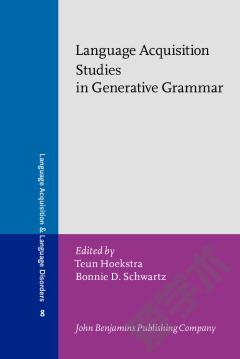Current Issues in Generative Hebrew Linguistics.
This volume presents a collection of specially commissioned papers devoted to analyzing the linguistics of Modern Hebrew from a number of perspectives. Various aspects of Modern Hebrew grammar are discussed including the structure of the lexicon, grammatical features and inflectional morphology, as well as the grammaticalization of semantic and pragmatic distinctions. The psycholinguistic issues addressed include the acquisition of morphological knowledge, the pro-drop parameter and question formation, as well as language use in hearing-impaired native speakers. The collection of these papers together in a single volume allows these phenomena to be considered not in isolation but in the context of the grammatical system of which the language is an expression. As a consequence, more general issues connected to Modern Hebrew begin to emerge, such as the role of the inflectional morphological system in the grammar, and a rich set of facts and analyses relevant for many related issues are made available to the reader.
{{comment.content}}








 京公网安备 11010802027623号
京公网安备 11010802027623号